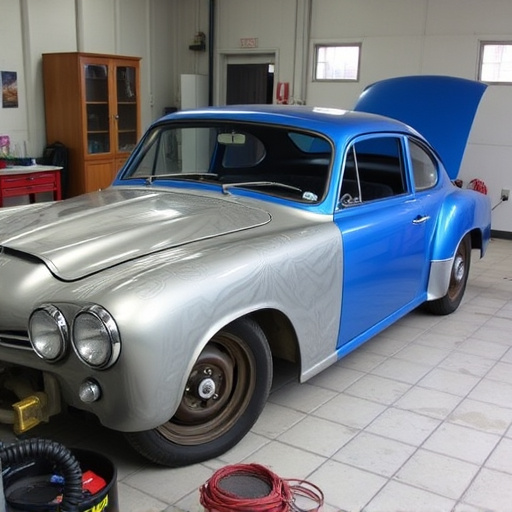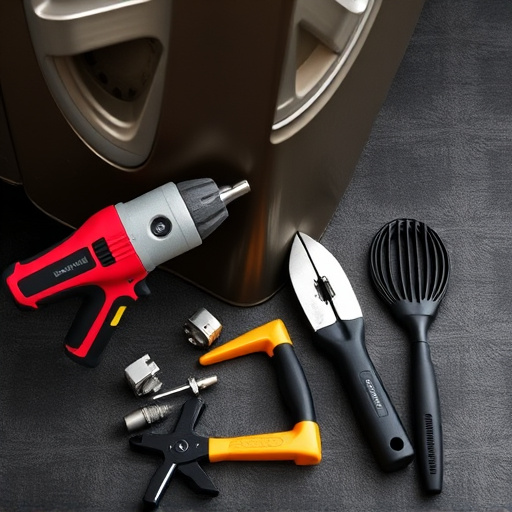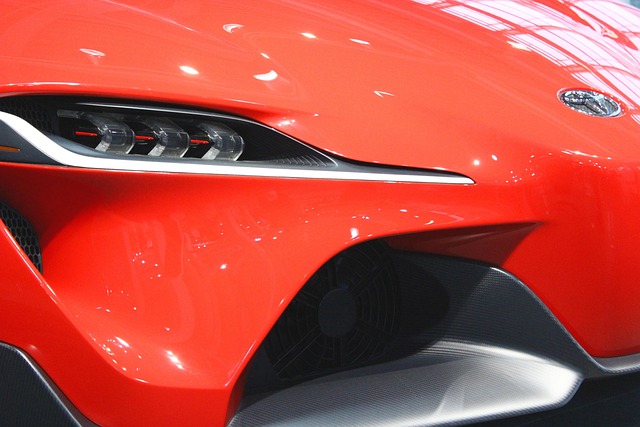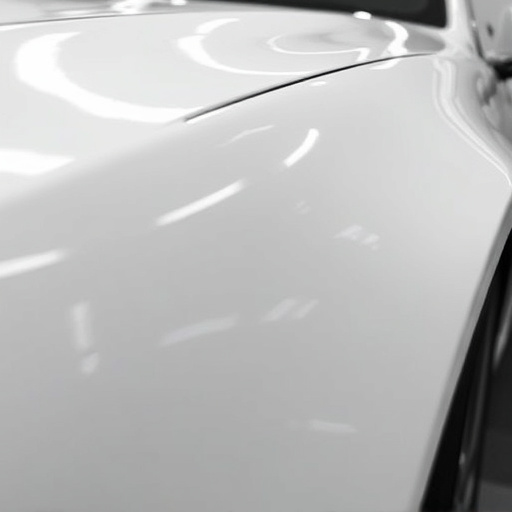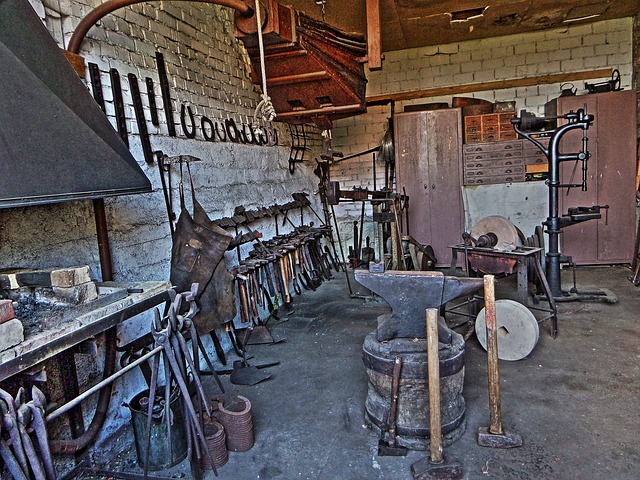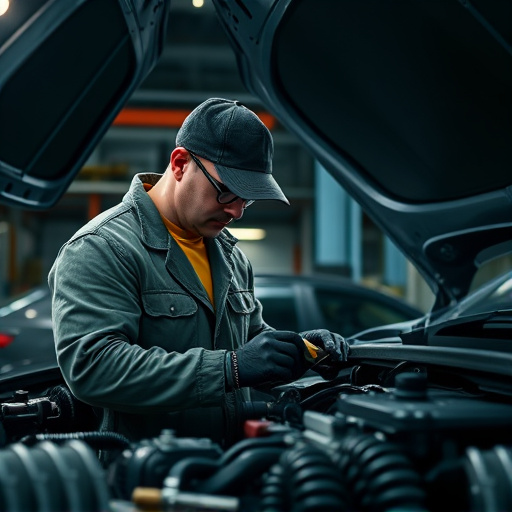The growing demand for lightweight yet durable materials like carbon fiber across industries like aerospace and automotive has led to a surge in specialized carbon fiber repair services for electric vehicles (EVs) and high-performance cars. These repair methods, requiring skilled technicians and advanced equipment, are crucial for maintaining structural integrity and safety. Carbon fiber's exceptional strength-to-weight ratio and design flexibility make it ideal for auto body work, offering durable, long-lasting repairs that maintain structural integrity while reducing vehicle weight and environmental impact. Modern auto shops invest in carbon fiber repair methods to handle these sophisticated repairs effectively, making it a game-changer in vehicle care that balances functionality and aesthetics.
In the modern manufacturing landscape, carbon fiber has emerged as a game-changer, offering unparalleled strength and lightweight properties. Its versatility drives applications across industries, from automotive and aerospace to sports equipment. However, this remarkable material presents unique challenges; cracks, breaks, and delaminations can compromise structural integrity and performance. This article explores why efficient carbon fiber repair methods are essential for modern workshops. We delve into the rising demand, common damage types, advanced repair techniques, and the advantages of specialized kits, providing a comprehensive guide to ensuring these composite materials’ longevity.
- The Rising Demand for Carbon Fiber in Modern Manufacturing
- – The benefits of carbon fiber: strength, lightweight properties, and versatility
- – Its use across industries: automotive, aerospace, sports equipment, and more
The Rising Demand for Carbon Fiber in Modern Manufacturing
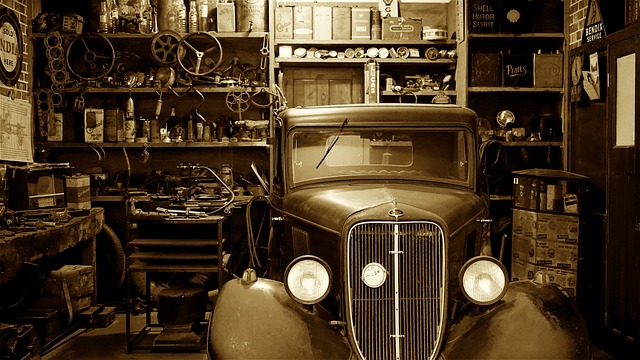
The increasing demand for lightweight and durable materials has led to a significant rise in the use of carbon fiber in modern manufacturing processes. This advanced composite material is now an integral part of various industries, from aerospace to automotive, due to its exceptional strength-to-weight ratio and corrosion resistance. As such, carbon fiber repair methods have become indispensable for modern shops catering to these sectors. With the growing popularity of electric vehicles (EVs) and high-performance sports cars, the need for specialized auto maintenance and vehicle repair services focusing on carbon fiber has skyrocketed.
The versatility of carbon fiber allows for intricate designs and innovative shapes, making it a game-changer in terms of vehicle design and aesthetics. However, this also presents unique challenges during manufacturing and subsequent vehicle dent repair or damage restoration. Carbon fiber repair methods need to be precise, as any misstep can compromise the structural integrity of these high-performance vehicles. Thus, modern shops must invest in skilled technicians and advanced equipment to handle carbon fiber repairs effectively, ensuring both the safety and performance of such sophisticated automobiles.
– The benefits of carbon fiber: strength, lightweight properties, and versatility

Carbon fiber, a remarkable material known for its exceptional strength-to-weight ratio, has revolutionized various industries, including automotive manufacturing. Its lightweight properties not only enhance performance but also contribute to fuel efficiency, making it an increasingly popular choice among modern vehicle designers. This versatility extends beyond aesthetics; carbon fiber can be molded into complex shapes, offering engineers and manufacturers unparalleled design freedom.
In the realm of auto body work and collision repair services, adopting carbon fiber repair methods is a game-changer. The material’s durability ensures that repairs are both effective and long-lasting, preserving the structural integrity of vehicles. Its lightweight nature also means that repairs can be carried out with precision, reducing overall weight and minimizing the environmental impact.
– Its use across industries: automotive, aerospace, sports equipment, and more

Carbon fiber repair methods have become indispensable across various industries, from automotive and aerospace to sports equipment manufacturing. Its lightweight yet incredibly strong properties make it a preferred material for high-performance vehicles and aircraft, where durability and efficiency are paramount. In the automotive sector, car damage repair using carbon fiber composite materials is increasingly common, allowing body shops to offer advanced solutions for car dent repair and restoration.
Modern car body shops that specialize in carbon fiber repair methods are equipped to handle complex structures found in these industries. They employ specialized techniques and tools tailored to fix cracks, chips, and dents without compromising the material’s integrity. This expertise ensures that vehicles not only look as good as new but also maintain their structural strength, making carbon fiber repair a game-changer in the automotive care industry.
As the demand for carbon fiber continues to grow across various sectors, adopting efficient carbon fiber repair methods becomes indispensable for modern workshops. By implementing advanced techniques, shops can ensure structural integrity and maintain the superior performance of carbon fiber components. Investing in these repair methods is a step towards staying competitive in an era where lightweight, strong materials are shaping industries.



